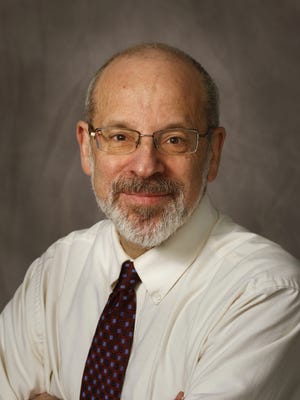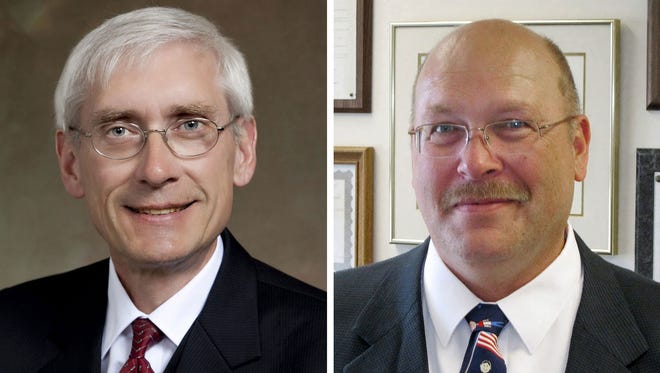Borsuk: Trump's budget abandons two bipartisan education efforts
A long time ago — 15 months or so — there seemed to be bipartisan national agreement on some core goals for education policy.
Two of those goals were improving teaching and providing kids who have a lot of needs with time in constructive settings beyond the school day.

That was then, when Congress passed a new national education law with strong bipartisan support.
This is now, and two of the things that would be dropped entirely under President Donald Trump's budget outline released last week are programs that fund efforts to improve teaching and provide low-income kids good places to go after school.
The budget plan said that $2.4 billion a year in money for professional development programs for teachers (principals, too) “is poorly targeted and spread thinly across thousands of districts with scant evidence of impact.” And cutting $1.2 billion for “Community Learning Centers” for kids is justified because “the program lacks strong evidence of meeting its objectives, such as improving student achievement.”
The budget outline also calls for zeroing the Americorps program that puts thousands of young people in public service programs nationwide each year at low pay. My two most recent columns in this space were about Milwaukee programs that depend heavily on Americorps workers, College Possible and Teach for America.
Let’s take this to ground level in Milwaukee, particularly in the view of one fairly horrified person, Milwaukee Public Schools Superintendent Darienne Driver.
“Not to have that — I just don’t understand,” Driver said in an interview, referring to the proposed zeroing of funding for professional training. “Maybe we haven’t done enough to show the value of professional development.”
Raising the overall low reading and math proficiency of students in Milwaukee has been difficult, and that goes for voucher and charters schools as well as MPS.
But Driver said progress is being made in MPS. Not having funding for staff development would set things back. MPS efforts have evolved to emphasize things such as “learning walks” in which educators observe in classrooms to develop specific advice for teachers, and programs focused more on continuous efforts involving the staff of specific schools rather than big one-day programs for teachers from many schools.
' Devastating ' cut
As for programs beyond the school day, many of them run by the Boys & Girls Clubs, Driver said $2.2 million in federal dollars that came to Milwaukee this year enabled programs in 47 schools serving 5,000 students on a typical day.
”With the children we have in this city, to have this many kids who don’t have any after-school or before-school programs — it would be devastating,” she said.
RELATED: Table set for major school choice push
RELATED: Superintendent candidates square off at forum
She said data about the kids in the local community centers shows school attendance and performance improve as they participate. Research nationally reaches similar conclusions. And, beyond homework help, kids are in safe settings, get nutritious food and are part of healthy social environments.
RELATED: Sherman Park Boys & Girls Club reopens after renovations
PHOTO GALLERY: The renovated Mary Ryan Boys & Girls Club
The Trump plan would have an impact statewide. There are after-school programs in many districts, for example, and federal funding for staff development is used across Wisconsin.
DPI candidates respond
One of the dividing lines between the candidates in the April 4 election for state superintendent of public instruction can be seen in reactions to the proposals.
Tony Evers, finishing his second term as state superintendent, was unhappy. He said he has visited many of the after-school centers and they do “great work.” He also said that cutting professional development funds would harm statewide efforts to improve teaching. "I think this is going to mean a downhill spiral for a lot of things” involving teaching quality if it happens, he said.
Evers also was critical of cutting off Americorps-supported programs that help low-income students get on track to go to college.

“Talk about being short-sighted,” he said. “That’s the exact group of kids we want to encourage.”
His opponent, Lowell Holtz, was generally favorable to the Trump plans. Holtz, who was superintendent in several Wisconsin districts, said he was concerned about cuts to teacher training. But he was “very encouraged” by the plan’s provision for more money for charter schools and school choice programs. “I support the right of all parents to choose what they believe is the best school for their children,” he said in a statement.
The Trump plan calls for spending $1.4 billion more in 2018 than in 2017 for charter schools, private school choice programs and “open enrollment” programs that would allow a student to go to “the public school of his or her choice.”
There were no details on how these initiatives would work. Especially in Wisconsin, which has four voucher programs already, a not-so-wide range of charter schools, and a statewide open enrollment program for public schools, it is not clear what might happen. As Holtz looked forward to pursuing the ideas, Evers expressed concern they would further weaken public schools.
Trump is correct that a lot of education efforts have not brought big improvement. Does that mean they’re failures? That they’re not doing any good? Are we better off with them or without them? When there’s so much need for better education outcomes for so many kids, is cutting a bunch of things to zero going to help? Or is there, perhaps, a need to make things better and more effective?
The Trump proposals are sure to undergo change. Some from both sides of the partisan aisle said many are going to go nowhere.
But there’s dramatic change in the air. What will emerge? Can we at least hope it won’t be some big-time way of telling needy kids, as Evers put it, “see ya”?
Alan J. Borsuk issenior fellow in law and public policy at Marquette Law School. Reach him at alan.borsuk@marquette.edu.